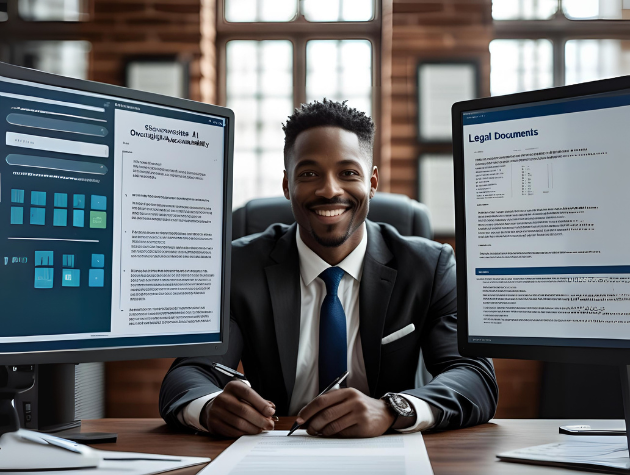Can you trust the AI tools integrated into your legal workflow—or are they silently introducing risks your team hasn’t considered? As artificial intelligence continues to disrupt the legal industry, one truth is clear: its power must be balanced with responsibility. For in-house counsel, this means more than awareness—it means active oversight. AI supervision for in-house lawyers is no longer optional. It’s an ethical duty that requires vigilance, systems, and proactive leadership.
That’s the message from Larry Bridgesmith, a legal technology pioneer and professor with deep experience guiding lawyers through the complexities of legal innovation. In a recent conversation, Larry emphasized that while the ABA Model Rules already contain a duty to supervise, the rise of AI necessitates a sharper, more deliberate approach. Without structure and accountability, AI’s ability to amplify mistakes or bias becomes a legal and ethical liability.
Watch the full conversation with Larry Bridgesmith here:
Understanding AI Supervision for In-House Lawyers
AI systems are fast, powerful—and imperfect. One of the biggest risks in legal settings is the phenomenon of AI “hallucinations,” where the technology generates plausible-sounding but false information. Larry points out that while human lawyers make errors too, AI’s scalability makes its mistakes far more dangerous.
This makes active supervision critical. In-house lawyers must understand how AI tools are trained, what data they rely on, and where they are most prone to error. Simply trusting that a vendor’s system “works” isn’t enough. Lawyers are responsible for the output, whether they generate it or not.
Technology That Supports Human Judgment
To help legal teams manage these risks, Larry works with Guardrail Technologies, a company developing oversight tools tailored for law. One such tool automatically cross-checks AI-generated answers against external sources to verify accuracy—an essential safeguard for professionals who rely on these tools in high-stakes work.
These technologies aren’t replacements for legal analysis—they’re enhancements to it. Lawyers must still apply professional judgment. But with the right systems in place, they can ensure AI serves their mission without compromising integrity.
The Role of Audits and Explainability
Larry also advocates for routine audits of AI systems used in legal departments. These should assess for bias, transparency, and privacy compliance, and should confirm that systems are understandable—not just functional. He acknowledges that full-scale audits can be costly, especially for smaller departments, but believes automation will increasingly lower the barrier.
In-house counsel should be pushing for AI explainability from vendors, documenting how and why tools are used, and ensuring that outputs can be traced and justified. Without this level of oversight, it becomes nearly impossible to defend against unintended consequences or reputational harm.
Anticipating the Unintended
Speaking of consequences, Larry makes a compelling case for a new ethical duty: the obligation to anticipate unintended outcomes. Whether it’s AI inadvertently leaking sensitive information or replicating discrimination embedded in its training data, the risks are real.
Being proactive—rather than reactive—protects both clients and the public. In-house teams must think like stewards, not just users, of legal technology. That means identifying blind spots, asking tough questions, and putting policies in place before something goes wrong.
Conclusion: AI Supervision Is the Future of In-House Legal Leadership
AI tools are already reshaping contracts, compliance, and client service. But in-house lawyers are still the ones accountable for outcomes. That’s why AI supervision for in-house lawyers must evolve from abstract principle to everyday practice.
Larry Bridgesmith’s insights serve as both a warning and a roadmap. With thoughtful oversight, integrated safeguards, and a commitment to ethical practice, legal teams can lead the profession forward—without losing sight of its foundations.
Watch the full conversation here: Notes to My (Legal) Self: Season 6, Episode 8 (ft.Larry Bridgesmith)
Join the Conversation
At Notes to My (Legal) Self®, we’re dedicated to helping in-house legal professionals develop the skills, insights, and strategies needed to thrive in today’s evolving legal landscape. From leadership development to legal operations optimization and emerging technology, we provide the tools to help you stay ahead.
What’s been your biggest breakthrough moment in your legal career? Let’s talk about it—share your story.



